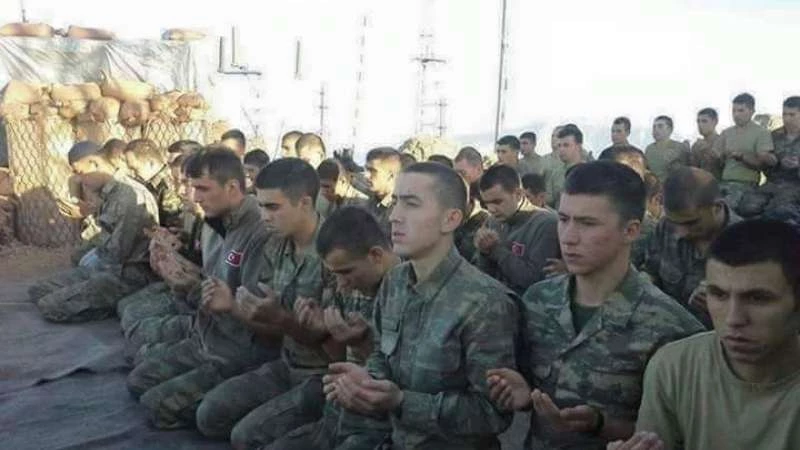Looking at the chronology of the incidents which led Turkey to adopt an amended Syria policy will explain a lot about how northern Syria’s future will be shaped.
It is a difficult decision to start a cross-border operation into Syria while being abandoned in practice by your NATO allies and European partners. The support of these “allies” for the PKK’s Syria wing, YPG, caused a huge frustration for Turkey. In the past several years, the majority of the country’s southern border fell into the hands of this terror group after the US-led coalition decided to fully cut its limited support to the Syrian opposition and instead play the PKK-YPG card in Syria. At around the same time, Assad regime’s endless crimes had started to find almost no attention in the media.
The PKK’s attempt to create a state at Turkey’s southern border does not only mean the terror group will have more ability to conduct terrorist activities in Turkey but it also means the revolution will come to an end with millions of Syrians whose lives are butchered by Assad will not have a dream of a united country anymore. Before the YPG-dominated Syrian Democratic Forces (SDF) started a planned offensive on Jarablus, U.S. Vice President Joe Biden departed for Ankara but the Turkish Armed Forces (TSK) was already in Syria. Biden realised a second surprise when he was greeted not by the Turkish prime minister but the deputy governor of Ankara.
Shortly after the Turkish army entered into Jarablus, President Recep Tayyip Erdogan had a telephone conversation with his Russian counterpart Vladimir Putin and spoke about the TSK’s Euphrates Shield operation. In less than a day, Turkey-backed Free Syrian Army (FSA) groups successfully seized good portion of Jarablus. On the 11th day of the operation, Turkish army opened a second front and this time it was targeting Daesh at al-Rai. This development took place shortly−maybe minutes−before Erdogan met with Putin in China and a day prior to a scheduled Erdogan-Obama meeting. Images circulating on social media showed Turkish troops together with FSA units holding a prayer before starting al-Rai battle.
It must be understood that the warming relations with Russia does not mean Turkey is turning a blind eye to Russian massacres in Syria. It would possibly be not wrong to say both Russian and American policies in Syria are competing on being more concerning for Turkey. At this very moment, Moscow is paying much more attention to Turkey’s words than its NATO ally, the U.S. In some way Turkey had to get out of the corner it was stuck in and it achieved it by amending relations with Russia. If Ankara had not taken this decision, the Euphrates Shield operation would not have been started as the Russians were threatening to down any flying object from Turkey. The PKK-YPG would also have reached their goal with its planned Jarablus offensive.
Now Turkey is at the steering wheel of this dangerous road. It is more confident of itself by proving what everybody said cannot be done: militarily-supported Syrian opposition can definitely be successful on the ground.
------------------------------------------------------
Mehmet Solmaz is a Turkish-British journalist who covers news developments in Turkey and the region for the Daily Sabah newspaper. He also frequently appears in international media to comment on regional politics and conflicts. You can follow him on Twitter @MhmtSlmz.



التعليقات (0)